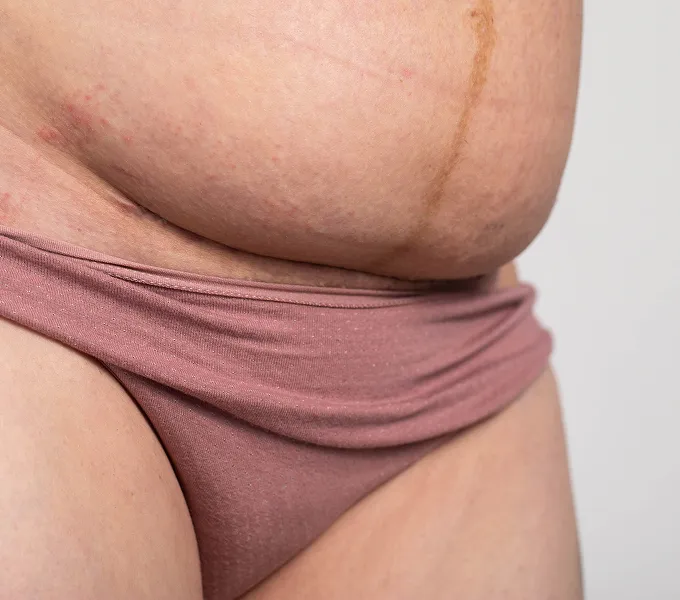
Why All Birthing People Need Postpartum Physical Therapy
Predictable isn’t a word we’d typically use to describe the first two years after giving birth, but there’s one thing we know for sure: Everyone can benefit from postpartum physical therapy. So why aren’t you automatically referred to a pelvic floor PT after having a baby? A recent editorial for Obstetrics & Gynecology put it best: “The current health care system does not prioritize care in the year after delivery and lacks an individualized approach that ensures postpartum patients are connected to the care they need.”
The status quo after childbirth is to have one postpartum visit with your OBGYN at 6 weeks. Once you’re “cleared for activity,” you’re expected to be able to do all the things you used to — and much more — regardless of how your body has been impacted by pregnancy and delivery. This is not only unrealistic, it causes unnecessary pain and suffering.
The strain of pregnancy and childbirth pushes your abdominal and pelvic floor muscles to the limit.
While your body has an amazing ability to adapt, the strain of pregnancy and childbirth pushes your abdominal and pelvic floor muscles to the limit. Without rehabilitation, they often remain weak, tight, and/or uncoordinated. It’s no wonder that 58% of individuals who gave birth vaginally and 43% of those who had a Cesarean birth report symptoms of pelvic floor dysfunction (think: incontinence, prolapse, and painful sex), while 1 in 3 still has diastasis recti (aka separated abs) one year after childbirth. Stats like these have spurred the American College of Obstetrics and Gynecology (ACOG) and the World Health Organization (WHO) to recommend better postpartum medical care.
At Origin, we’re leading the way with our Postpartum Recovery Program, which was developed by our expert clinical team and provides the education and guidance that every postpartum individual needs to heal from pregnancy and childbirth, reactivate their abdominals and pelvic floor, and protect their body from pain, injury, and pelvic floor dysfunction.
Not sure if physical therapy will be worth the time and effort? Here are 7 reasons why it's one of the best things you can do for yourself and your baby.
1. You'll Reactivate your abs
When you think about how your skin was stretched to the max in pregnancy, your abdominal muscles are probably a close second. So much so, that you may have even developed some amount of diastasis recti. After being stretched and strained for over 9 months, your muscles are bound to feel weaker, difficult to connect with, and even a little foreign to you.
After being stretched and strained for over 9 months, your muscles are bound to feel weaker.
When seeing a physical therapist in the postpartum period, you'll learn to safely reconnect with your abdominal muscles, and confidently start using and strengthening them. Healthy abdominals not only allow you to move, breathe, and care for your baby without pain, they'll help protect your back and support pelvic muscle function.
2. You'll Prevent & treat pelvic symptoms
Pelvic floor injuries that are common in pregnancy and childbirth can lead to symptoms including pelvic pain, bladder or bowel leakage, and pelvic pressure or heaviness (prolapse). Studies show that these symptoms are associated with postpartum mood and anxiety disorders, and can significantly reduce quality of life. Having multiple children and going through menopause can increase their negative impact.
A pelvic floor physical therapist can provide you with a full evaluation of your pelvic floor muscles and injuries, information about your symptoms, and a clear path back to lasting pelvic health.
3. You'll improve your sex life
After having a baby, you are bound to hit a few bumps in the road on the way back to the bedroom. In fact, nearly 2 out of 3 birthing people experience sexual dysfunction in the postpartum period. That can include decreased desire, problems with sexual arousal, or inability to orgasm. Multiple factors, including lack of sleep, poor body image, pelvic floor symptoms such as leakage, pelvic pressure, or pain can all contribute to sexual dysfunction.
Pelvic floor physical therapists are experts in getting to the bottom of sexual dysfunction.
As pelvic floor physical therapists, we are experts in getting to the bottom of sexual dysfunction and can help heal your injuries by optimizing your pelvic muscle function, minimizing pain and scar tissue, and getting you the resources your need to have a satisfying sex life.
4. You'll have an easier time feeding
Whether you're breast/chestfeeding or using formula, feeding your baby comes with many challenges. Whatever your baby-feeding goals, postpartum physical therapy can support them.
When working with a postpartum PT, you'll learn how to reduce inflammation and prevent symptoms associated with clogged milk ducts and mastitis, use ergonomic feeding and pumping positions to keep your body out of pain, take care of delicate breast and nipple skin, and much more. If needed, your PT can also connect you with a trusted lactation consultant.
5. You'll Defy the "pee when you sneeze" cliché
While bladder leaks can often be expected in the first few weeks after a vaginal delivery (we recommend Hazel's briefs to get you through!), incontinence should naturally resolve as your tissues heal and swelling and bruising goes down. Unfortunately, it's all too common for urinary leakage to persist — and you may even experience loss of stool or gas.
Retrain your pelvic floor muscles so that they can hold in pee, poop, and gas under pressure.
No one should put up with incontinence, just because they had a baby. Bladder or bowel leaks can take a toll on emotional wellbeing and can lead to continued pelvic floor muscle function. Through evidence-based treatments, your pelvic floor PT will help you strengthen and retrain your pelvic floor muscles so that they can hold in pee, poop, and gas under pressure.
6. You'll Care for your scar tissue
Whether your scar tissue is from a tear during vaginal delivery or the result of a Cesarean incision, postpartum physical therapy can help you avoid common scar complications.
Even after your tear or incision has healed, scar tissue can limit blood flow to the area, which can affect nerve function and lead to pain, poor muscle function, and trigger points in the muscle. Cesarean section scar tissue can also grow deep in the abdomen, forming adhesions that impact the muscles and even the function of abdominal organs. In some cases, deep scaring can reduce gastrointestinal function and even lead to mechanical infertility.
A postpartum physical therapist will teach you about your scar and, based on your health history, trauma history, and the extent of your injuries during delivery, recommend personalized scar care and massage techniques.
7. You'll Exercise effectively
Whether your goals are to keep up with your active kids, join your friends at Camp Gladiator, or finish a Labor Day 10K, it can seem like the deck is stacked against you after you've had a baby. From sleep deprivation and a demanding feeding schedule to all the conflicting advice from the internet’s various experts, it can be tricky to know where to start when returning to exercise.
Don't waste a drop of precious energy on workouts that don't get results.
Your postpartum physical therapist can guide you in exercising not just safely, but also effectively — so you don't waste a drop of precious energy on workouts that don't get results. After fully assessing your muscles and checking for injuries, imbalances, and movement impairments, your PT will work with you to create an evidence-based exercise program that promotes proper muscle function, empowers you to build lasting strength, and helps you feel better than you ever imagined in your postpartum body.




